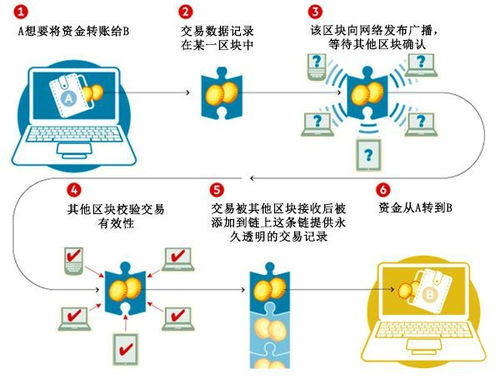Exploring the Potential of Blockchain Technology for Digital Citizenship
In recent years, blockchain technology has emerged as a powerful tool with transformative potential across various sectors. One of the most promising applications of blockchain is in the realm of digital citizenship. This article delves into the concept of blockchain citizens (or "blockizens") and explores how blockchain technology can revolutionize the way we perceive and engage in digital citizenship.
Blockchain citizens, often referred to as blockizens, are individuals who leverage blockchain technology to participate in digital communities, interact with decentralized platforms, and exercise their rights and responsibilities in the digital realm. Unlike traditional citizenship, which is often tied to geographical boundaries, blockchain citizenship transcends borders, offering individuals a new paradigm for digital identity and participation.
1. Immutable Identity: Blockchain technology enables the creation of immutable digital identities, which are resistant to tampering and fraud. Each blockizen has a unique cryptographic identity that can be verified instantly, providing a secure foundation for digital interactions.
2. Transparent Governance: Decentralized autonomous organizations (DAOs) powered by blockchain technology allow blockizens to participate in transparent and democratic decisionmaking processes. Smart contracts ensure that governance rules are enforced automatically, without the need for intermediaries.
3. Ownership and Control: Blockchain citizens have greater control over their personal data and digital assets. Through selfsovereign identity solutions and decentralized storage platforms, individuals can manage their information autonomously, reducing reliance on centralized entities.
4. Global Participation: Blockchain citizenship transcends geographical barriers, enabling individuals from around the world to participate in digital communities and contribute to decentralized projects. This global interconnectedness fosters collaboration and innovation on a scale previously unimaginable.
1. Electronic Voting: Blockchainbased voting systems can enhance the integrity and accessibility of elections by providing a secure and transparent way for citizens to cast their votes. By eliminating the risk of tampering and ensuring verifiability, blockchain technology can strengthen democratic processes.

2. Identity Verification: Blockchainbased identity solutions offer a more secure and efficient alternative to traditional methods of identity verification. Whether accessing financial services, healthcare records, or online platforms, blockizens can prove their identity without relying on centralized authorities.
3. Supply Chain Traceability: Blockchain technology can improve supply chain transparency by enabling endtoend traceability of products. Blockizens can track the origin, journey, and authenticity of goods, helping to combat counterfeiting, ensure ethical sourcing, and promote sustainability.
4. Social Impact Initiatives: Blockchain citizenship can empower individuals to participate in social impact initiatives and philanthropic causes. Through decentralized crowdfunding platforms and transparent donation tracking, blockizens can support charitable projects and monitor the impact of their contributions.
While the potential benefits of blockchain citizenship are significant, several challenges must be addressed to realize its full potential:
1. Regulatory Uncertainty: The regulatory landscape surrounding blockchain technology is still evolving, with policymakers grappling to keep pace with innovation. Clear and consistent regulations are essential to foster trust and enable widespread adoption.
2. Scalability: Scalability remains a pressing concern for blockchain networks, particularly as they strive to support a growing number of users and transactions. Advances in scalability solutions, such as layer 2 protocols and sharding, are crucial to ensure the viability of blockchain citizenship at scale.
3. Usability: The user experience of blockchainbased applications must be intuitive and userfriendly to attract mainstream adoption. Improvements in wallet design, transaction speed, and onboarding processes are essential to lower barriers to entry for aspiring blockizens.
Blockchain citizenship holds immense promise for reshaping the landscape of digital interactions and redefining the concept of citizenship in the digital age. By harnessing the power of blockchain technology, individuals can assert greater control over their digital lives, participate in decentralized governance structures, and contribute to global communities without borders. While challenges remain, the potential benefits of blockchain citizenship are too significant to ignore, heralding a new era of digital empowerment and inclusion.
标签: 区块链工程师 区块链教程 区块链上链是什么意思







